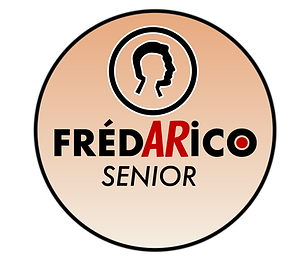

"FrédARico succeeds in a special way in finding an emotional approach to people with dementia through his virtual body language and his playful approaches. He promotes humorous scenic contacts and vitalizing interactions even with people who are lost in themselves due to dementia or who show a depressive sadness . With the key experiences of "making laughter" analyzed by us, we give people positive impetus."
Markus Strobl (inventor of FrédARico the virtual clinic clown)

"We appeal to people's feelings. Even if the memory sticks, the People's feelings are active to the last. With the magic of augmented reality, we make FrédARico appear and put a smile or even a laugh on people's faces."
Markus Strobl (inventor of FrédARico the virtual clinic clown)
Laughing at the virtual clinic clown FrédARico can play a valuable role in dementia therapy because it can have various positive effects on those affected. Here are some reasons why laughter helps in dementia therapy:
-
1. Reducing Stress: Laughter can help reduce stress levels in people with dementia. Laughter releases endorphins, which act as natural pain relievers and can improve overall well-being. Laughter can also reduce the production of cortisol, a stress hormone that is often elevated in people with dementia.
-
2. Mood improvement: Dementia can lead to depression and a feeling of isolation. Laughter can help improve this mood by encouraging positive emotions and social interactions. Sharing humor and laughing with others can help dementia patients feel better and less isolated.
-
3. Improving Cognitive Function: Laughter can also help improve the cognitive functions of people with dementia. A study has shown that laughter can improve working memory by increasing the processing speed of the brain. Another study showed that laughter can improve attention and memory.
-
4. Encouraging Social Interactions: Laughter can help to enhance the social interactions of people with dementia. Laughter allows people to connect and express themselves in ways that go beyond words. Laughter can also help build trust and bonding between people with dementia and caregivers or family members.
Overall, laughing at the virtual clinic clown FrédARico in dementia therapy can be a simple and effective way to improve the quality of life of dementia patients. It can help reduce stress and depression, improve mood, boost cognitive function, and enhance social interactions.


